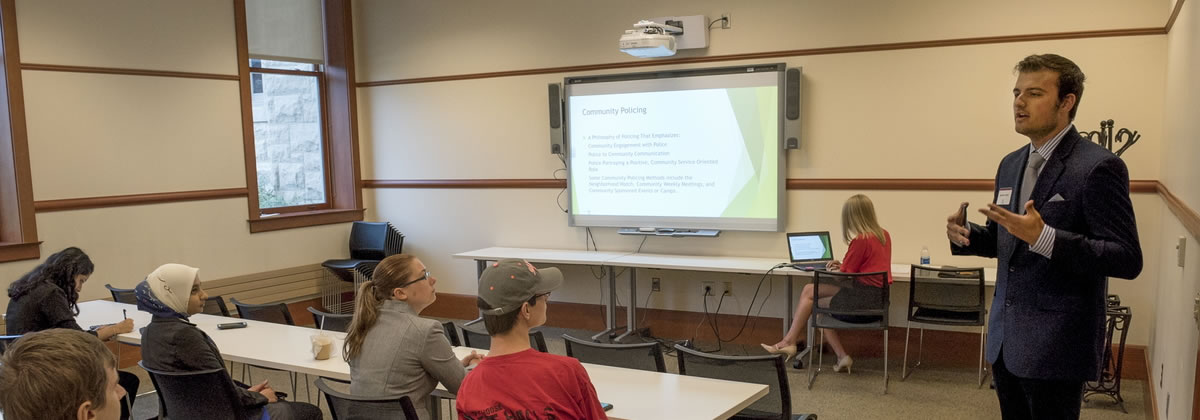- Effective Presentation Skills Tutorial
- Handling Questions and Answers

Handling Questions and Answers
At the end of your presentation, if it is appropriate for the type of presentation, solicit questions from the audience.
Responding to Audience Questions
When someone is asking a question, make eye contact with that person, listen positively, and acknowledge by saying "thank you for that question," or say "that is an excellent question" or "that is an important question".
If the audience is in a large room and cannot hear each other's questions, repeat the question loudly for everyone to hear, before answering it.
If you know the answer to the question, respond appropriately and briefly so you can take more questions and not spend too much time on one question.
Effective Response to Question
This video clip is an example of a presenter effectively responding to an audience member's question.
Ineffective Response to Question
This video clip is an example of a presenter ineffectively responding to an audience member's question.
If the question is not relevant to the presentation, say something like, "I am really sorry that question is outside the scope of this presentation, but I will be happy to stay after the presentation and discuss it with you."
Effective Response to Off-topic Question
This video clip is an example of a presenter effectively responding to an off-topic question or one in which he or she does not know the answer.
Inappropriate Response to Off-topic Question
This video clip is an example of a presenter inappropriately responding to an off-topic question or one in which he or she does not know the answer.
If time is running out for answering all of the questions, say, "I am sorry. I am running out of time, but I will take one last question, and then I will be available at the end to answer any remaining questions."
If you do not know the answer to a question say, "That is an interesting question, and I will have to get back to you later on that" or ask the audience "Can someone help me with this?" or be gracious and acknowledge you do not know the answer at that time.
If an audience member criticizes or attacks what you had covered in your presentation, do not attack back, but separate the valid criticism from the personal attack, and respond to the criticism appropriately.
Some things not to do during the question and answer period:
- Shuffling papers or technology and not making eye contact with the questioner
- Belittling the questioner
- Calling those who want to ask questions by their physical characteristics
- Not taking questions in the sequence they are asked, but focusing on certain people or a side of the room
Asking Good Questions
If you are in the audience, know also how to ask good questions to indicate that you are following the presentation.
You can ask some general questions about any topic, and you may be genuinely curious about some things presented.
- What were the most challenging aspects, or what surprised you the most, in conducting this project?
- Why did you choose this particular methodology or argument instead of another one?
- How did you collect the data? Were there any problems in collecting data? What was the sample size?
- How did you validate your work? Did you validate with a real problem or situation?
- What are some of the limitations of your work?
- What recommendations do you have for further exploration in this project?
Learning to ask good questions at the end of a presentation demonstrates your active participation.
- Tutorial
